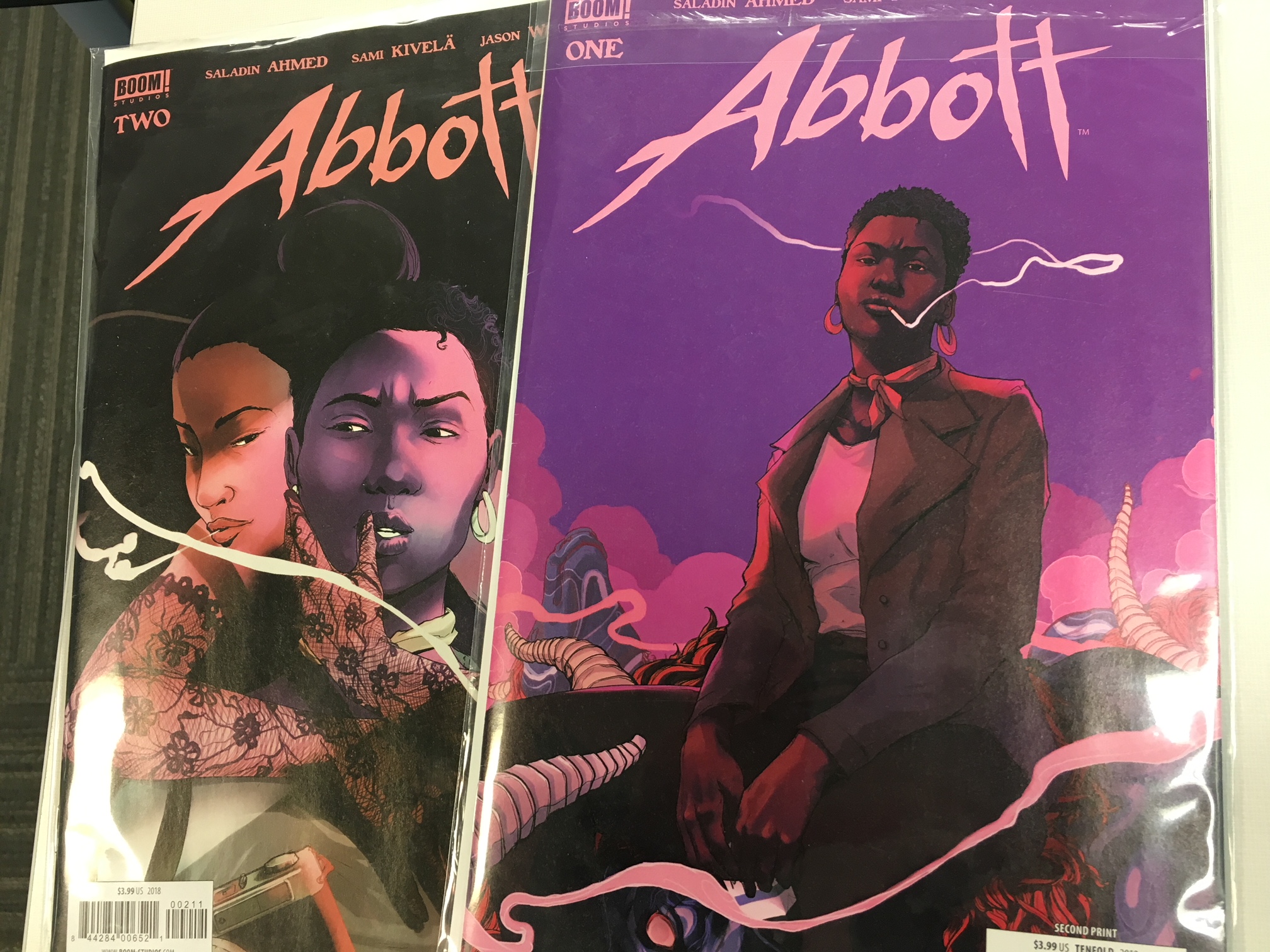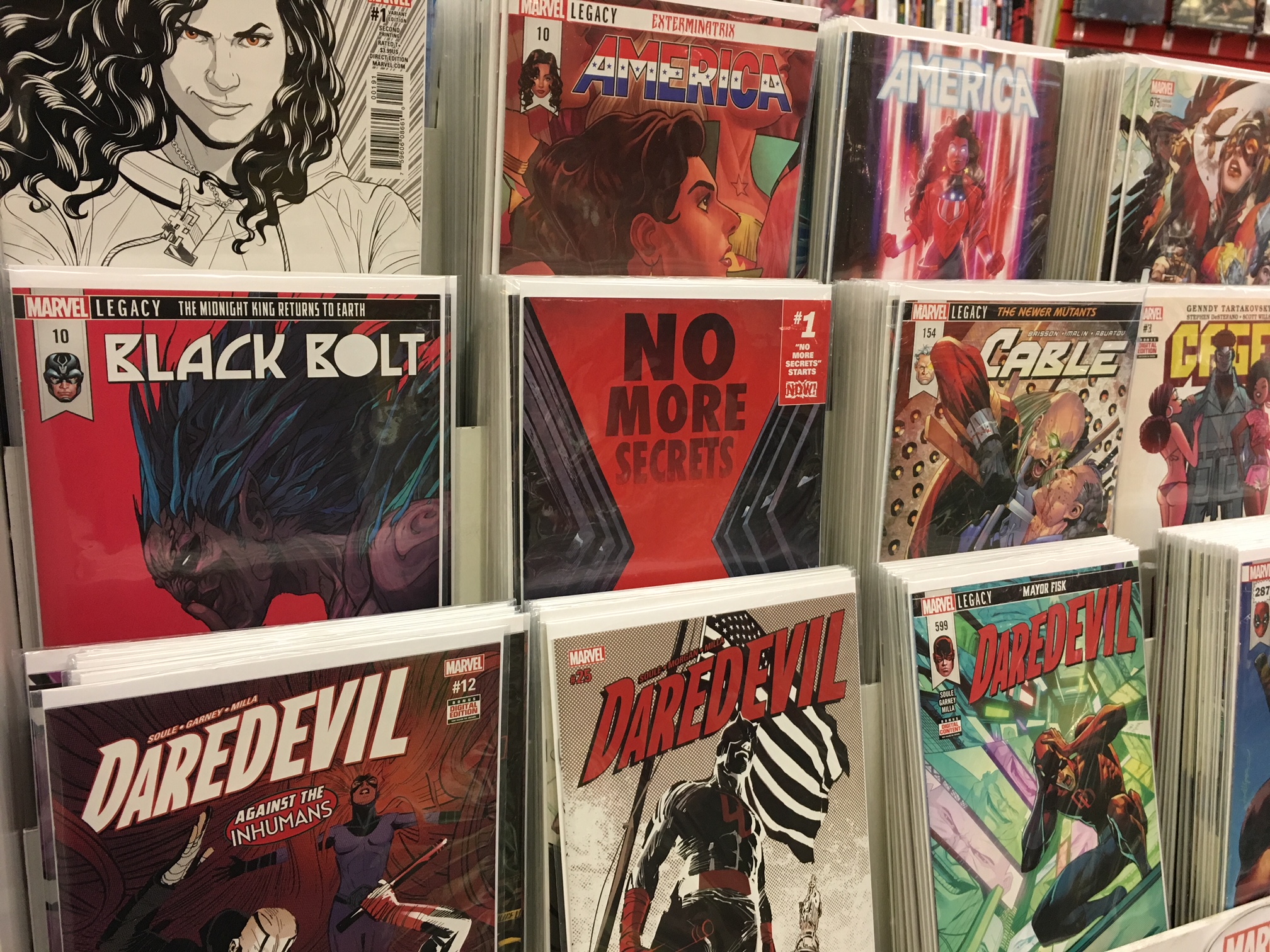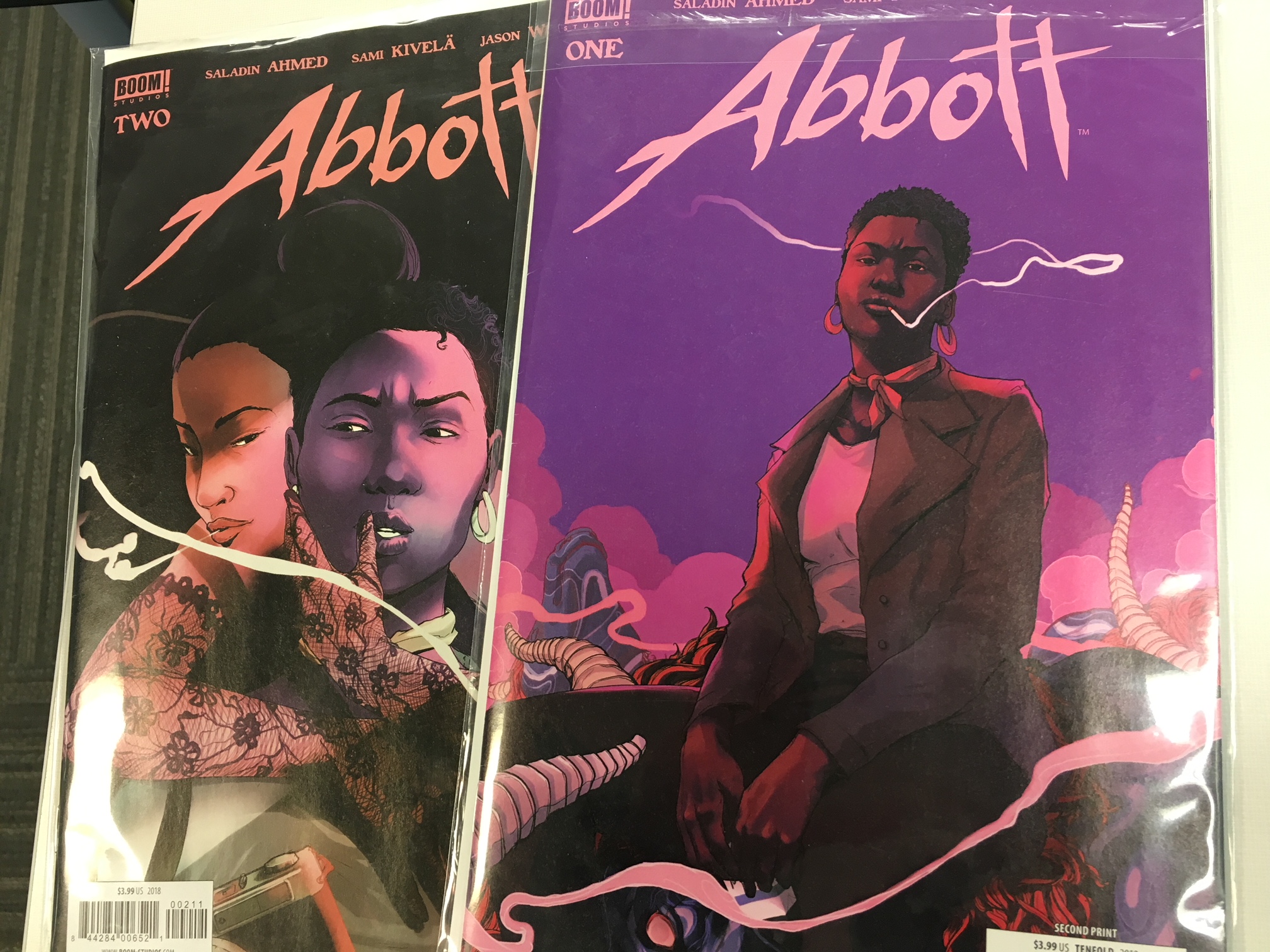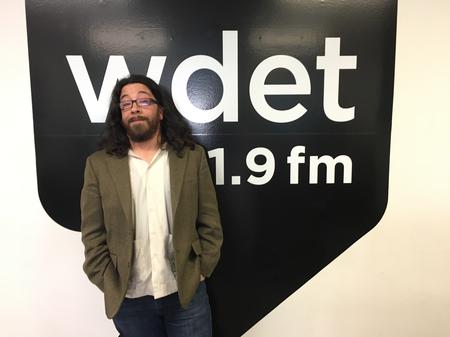‘Blowing Open Misconceptions’: How Comic Books Push the Discussion About Race and Representation in America
Saladin Ahmed is taking marginalized characters and “shifting them toward the center of the story.”


The Marvel superhero movie “Black Panther” has made more than one-billion dollars at the box office since it opened a few weeks ago. It’s joined an elite class — just a handful of movies in its company — that have surpassed that billion-dollar mark.
The success of Ryan Coogler’s Afro-centric superhero film has called into question long-held standards in Hollywood that regarded white heroism as the only form of gallantry that would be palatable to the general public.
The proverbial white knight was knocked off his horse and replaced with a black king who lives in full celebration of blackness and black success. “Black Panther” also called us to discuss more intimately the importance of representation in entertainment — for all Americans to see themselves reflected in positive roles on the big and small screens, as well as in art and literature.
The issue of representation cuts right to the core of the world from which “Black Panther” was birthed — comic books. The industry of illustrated storytelling has been wrestling for many years with what it means to reflect society in its fictionalized worlds and the heroes that rescue them.
Saladin Ahmed is a comic book story writer who is currently working on Black Bolt — another Marvel hero — and Abbott — a series that takes place in 1970s Detroit, and follows the story of a black photojournalist Elena Abbott.

Ahmed is also a native of Dearborn and lives in Metro Detroit with his family. He says Detroit was an influential backdrop for him during his formative years, and he knew he wanted to tell a story that was set in the city in the years after the civil unrest of 1967.
He joins Detroit Today with Stephen Henderson to speak about the issues of representation in the world of comic books.
“I think a lot of times when people are writing white characters they don’t think enough about what it means for this character to be white,” says Ahmed. “No one ever asks a writer, ‘What was your thought in making this character a straight white man?’ But if you’ve got a bi-sexual black woman as your star that’s everybody’s first question.”
Ahmed says there are too many potential characters and storylines going untold because the focus has been on white, male heroism for so long.
“A great deal of my work is taking those people — whether it’s Arab characters, whether that’s black characters, whether that’s gay characters, women — and shifting them toward the center of the story.”
According to Ahmed, his work fits in with writers from the past, such as Stan Lee and Jack Kirby, who were trying to broaden the spectrum of characters in their comic books.
“Those of us who are trying to broaden [diversity in comic books], we are operating in their tradition,” he says.
“People who are really resistant…really don’t know what those guys were doing back in the day and how much what they were doing was about blowing open misconceptions.”

Ahmed is also working on Exiles, a Marvel series reboot that features a band of heroes, including Ms. Marvel, the company’s first Muslim hero. Exiles launches in April of this year.
Note: This conversation first aired on Detroit Today on March 22, 2018.
Click on the audio player above for the full conversation.
